ZMINA: Rebuilding | Neformat Music Unity: Uniting Ukraine's Music Community in a Time of War
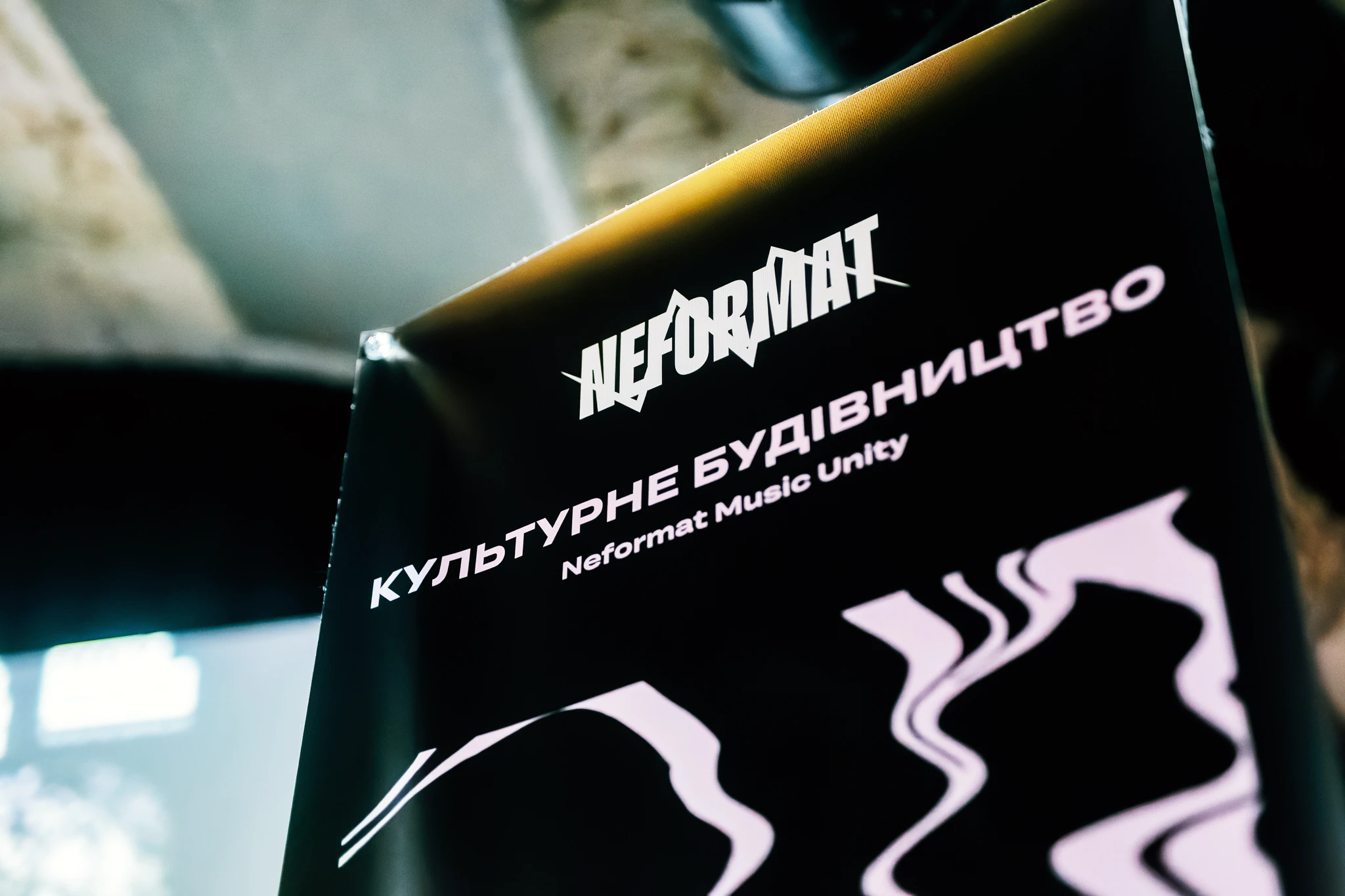
Last spring, Neformat Music Unity: Cultural Construction, a dynamic one-day conference, brought together professionals from the underground and indie music scenes to discuss pressing issues, share experiences, and explore the path to post-war recovery. We spoke to the organizing team about the challenges of hosting such an event in wartime conditions, the importance of creating a platform for dialogue, and their vision for the future of Ukraine’s music industry.
Can you share the story behind the inception of the Neformat Music Unity: Cultural Construction conference? What were the key motivations and inspirations that led to its creation?
We first considered organizing the conference in 2020 when we realized we lacked a platform to discuss pressing issues specific to the underground music scene. At that time, there were many challenges related to COVID-19. We developed an initial vision for the conference, discussed the idea with potential speakers, set up a budget, and even submitted the idea to a grant competition, but we did not win. As a result, the conference remained just an idea for about a year.
In the fall of 2022, we learned about the Zmina 2.0 program, which perfectly suited the requirements for holding the conference. Our team then began updating the initial idea to meet the current needs and challenges faced by the industry due to the full-scale invasion. We won the grant, and thanks to this, we were able to hold the first underground music conference in Ukraine.
How did the success and feedback from the first conference, Neformat Music Unity: Movement Despite the War, influence the planning and thematic focus of this second event?
Neformat Music Unity: Movement Despite the War was our first experience with a large professional event. Before that, we had only organized concerts or festivals, which are somewhat different. Successfully holding such an event and receiving a lot of positive feedback was very inspiring for us to continue the project.
We kept our approach to organizing almost identical, as we initially developed a format considering wartime risks (e.g., power outages, air raid alerts, etc.). Since everything worked well the first time, we did not change much. However, we considered the feedback from last year's grant providers and added some pleasant touches, such as eco-friendly gift bags for participants. Everyone was delighted!
We also slightly adjusted the thematic focus of the event, considering that we attract more representatives from the indie scene rather than the underground one. Thus, the detailing of topics had some emphasis on this niche. However, we did not change the format completely, as our strategic goal is to bring “heavier” and more complex music genres closer to the mainstream audience and industry.
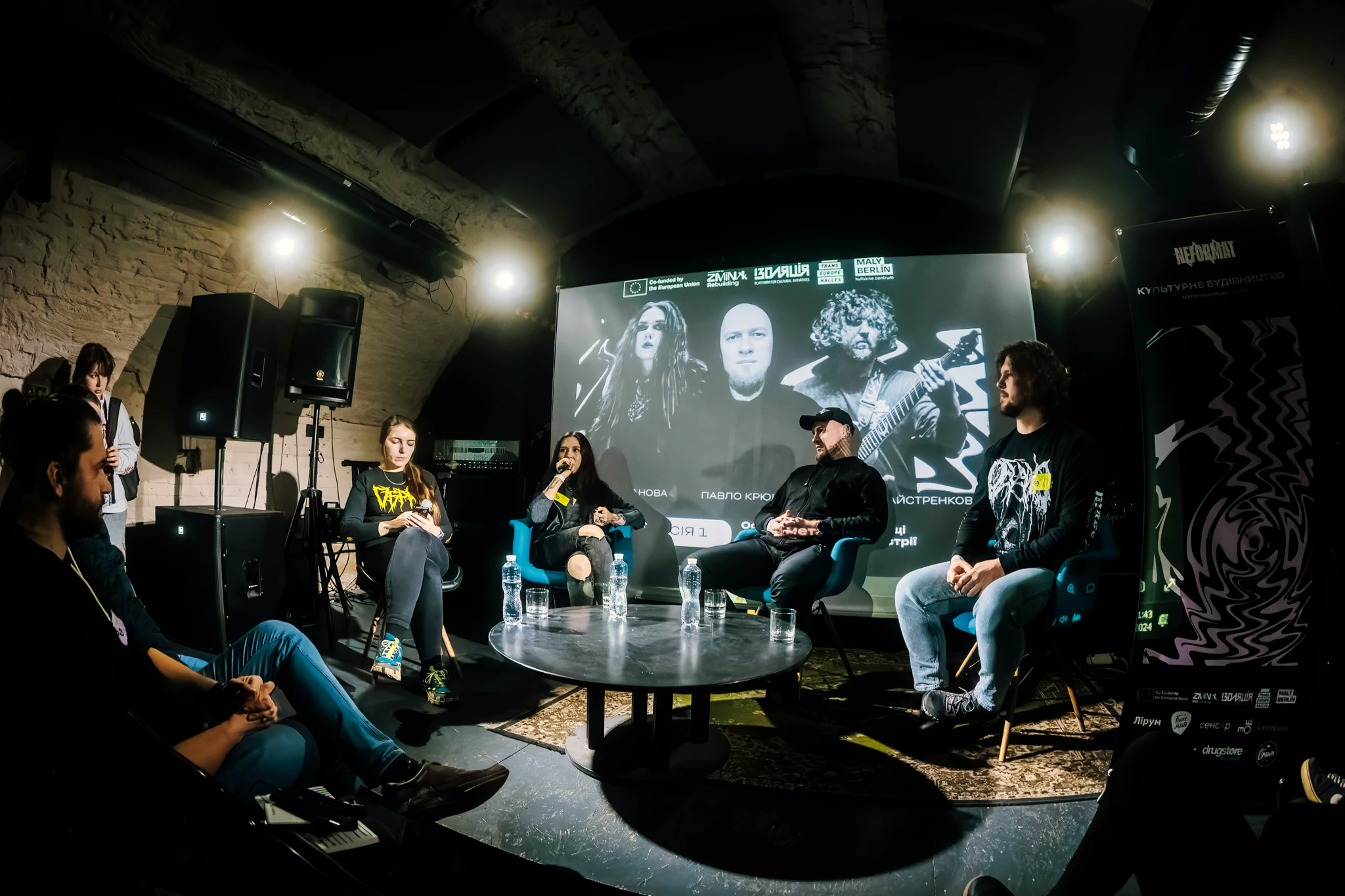
What were the main challenges and advantages of organizing a hybrid conference in the current context of the full-scale Russian invasion?
We already had experience organizing concerts in a hybrid format, which we developed during the COVID-19 pandemic. While this format did not work quite well for concerts, broadcasting is an excellent opportunity to participate even if you can't be physically present at conferences and other panel events. Moreover, this approach allowed us to involve more participants, and recording the broadcast made the discussions accessible even after the conference was over.
For Neformat Music Unity, we chose The Crown twice. It’s a small concert venue located in a basement in the center of Kyiv. The location is rather safe on its own, with the nearest shelter being a five-minute walk away. However, the size of the venue limited the number of possible offline attendees to 70 people. Therefore, along with the event announcement, we issued an open call for those who wanted to join offline and selected the most active music industry professionals, focusing on managers and musicians who manage their own projects. This approach helped facilitate productive networking. Those who were not selected could join the conference online, as could anyone interested.
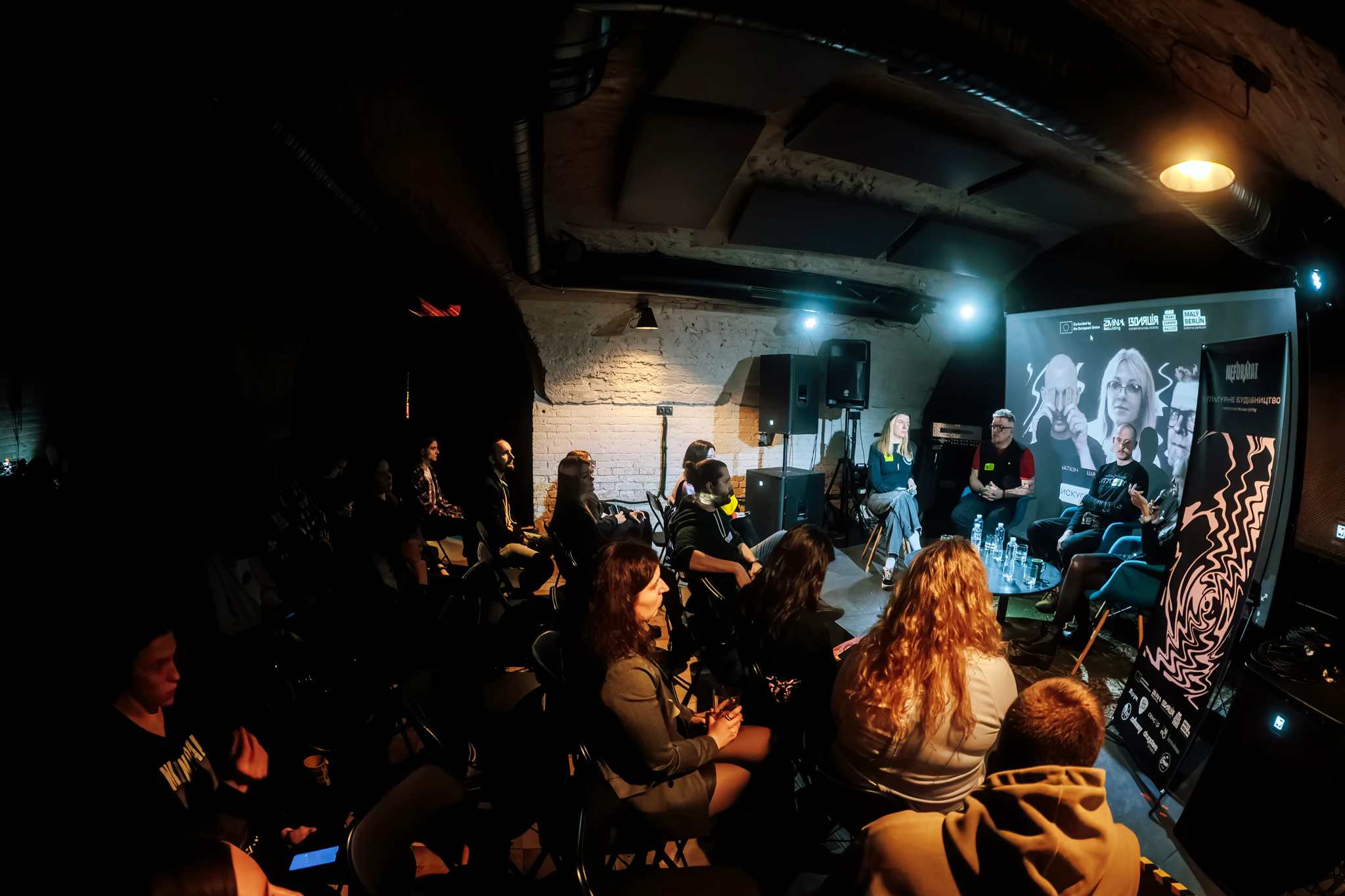
Could you elaborate on the process of selecting the topics for the discussions and lectures? How did you determine the most pressing issues to address in this conference?
First and foremost, we decided to step outside the bubble of our editorial team and reached out to the Neformat reader community in a private chat. These are people who support us financially and are often notable figures in the Ukrainian music scene. Their opinions resonated with ours, especially regarding the topics of charity events during the war and the prospects for developing our music market.
Next, our colleague Kseniia Yanus, who actively attends many professional events in Kyiv, suggested the excellent idea of inviting a lawyer to discuss the need for the music sector to come out of the shadows.
We had doubts about the last topic because there was no noticeable consensus, but we seized and developed the idea from a community member that we should not only focus on external processes but also on how music works on a more personal level. Ultimately, this discussion received perhaps the most positive feedback!
Speaking of war-time events, how do you see such occurrences contributing to the post-war recovery of the Ukrainian music sector and the broader cultural sphere? Have you noticed any impact on the morale of Ukrainians during these difficult times?
Such events become a platform for discussing urgent issues, exchanging experiences, and facilitating networking, which is extremely important in times of crisis. We also noticed that our conference became a source of inspiration for other organizations, and small, intimate discussions are increasingly being held in music club venues.
Both conferences received a lot of positive feedback regarding morale support—participants valued the competent support of colleagues and the opportunity to gather in a professional environment and discuss pressing issues. This year, we dedicated a separate discussion to the relationship between music and its impact on mental health.
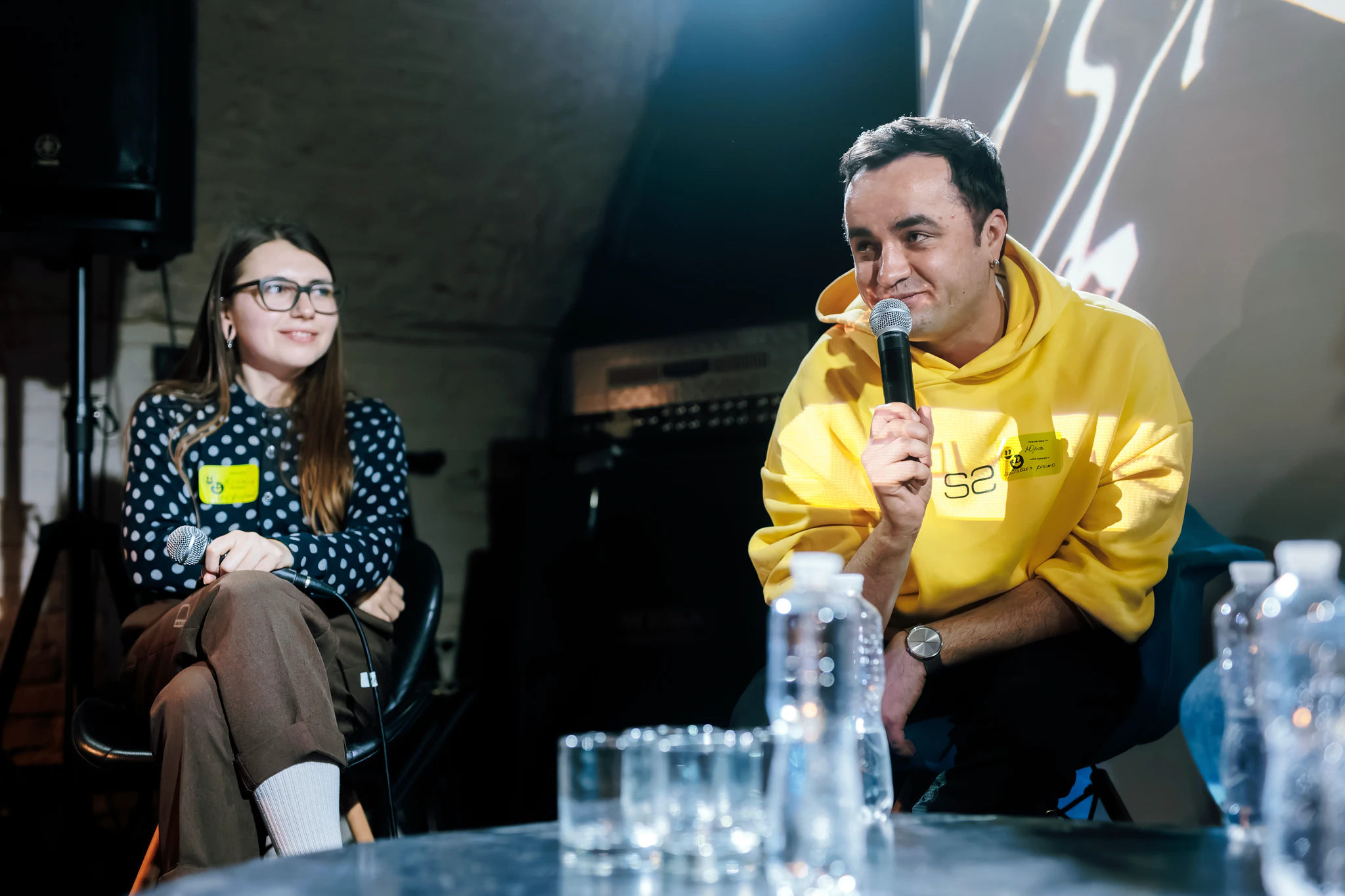
Given the dangers of wartime, including air raid alerts and shelling in Kyiv, what specific measures did you take to ensure the safety and security of all participants and speakers? Did you encounter any logistical difficulties during the event organization, and how did you overcome them?
Considering all the challenges, we chose a venue located on the basement level and close to an underground metro station. We also prepared in advance for potential power outages by ensuring the availability of a generator and such. We were fortunate not to face logistical problems but we did notice that during the arrangements stage, speakers found it challenging to plan their schedules 1-2 months in advance, and we received final confirmations of participation just before the announcement.
The third discussion focused on music as a tool for psychological recovery. How important do you think this aspect is for both musicians and the general public, and what do you hope to achieve through this discussion?
As we mentioned earlier, this topic was somewhat accidental for us, but, in practice, it resonated the most with people. Some even called it a collective session of music therapy!
For us, music is a very important part of life, as it was our love for music that led most of us into music journalism. However, in the daily grind, we sometimes forget that music is not just a tool for cultural diplomacy, charity fundraising, or artistic expression. People tend to attend concerts or share their favorite releases because a particular piece of music affects them emotionally, calms or invigorates them, gives them strength to endure difficulties, shares happy moments with them, or stimulates their imagination. Musicians often happen to play music for the same reasons.
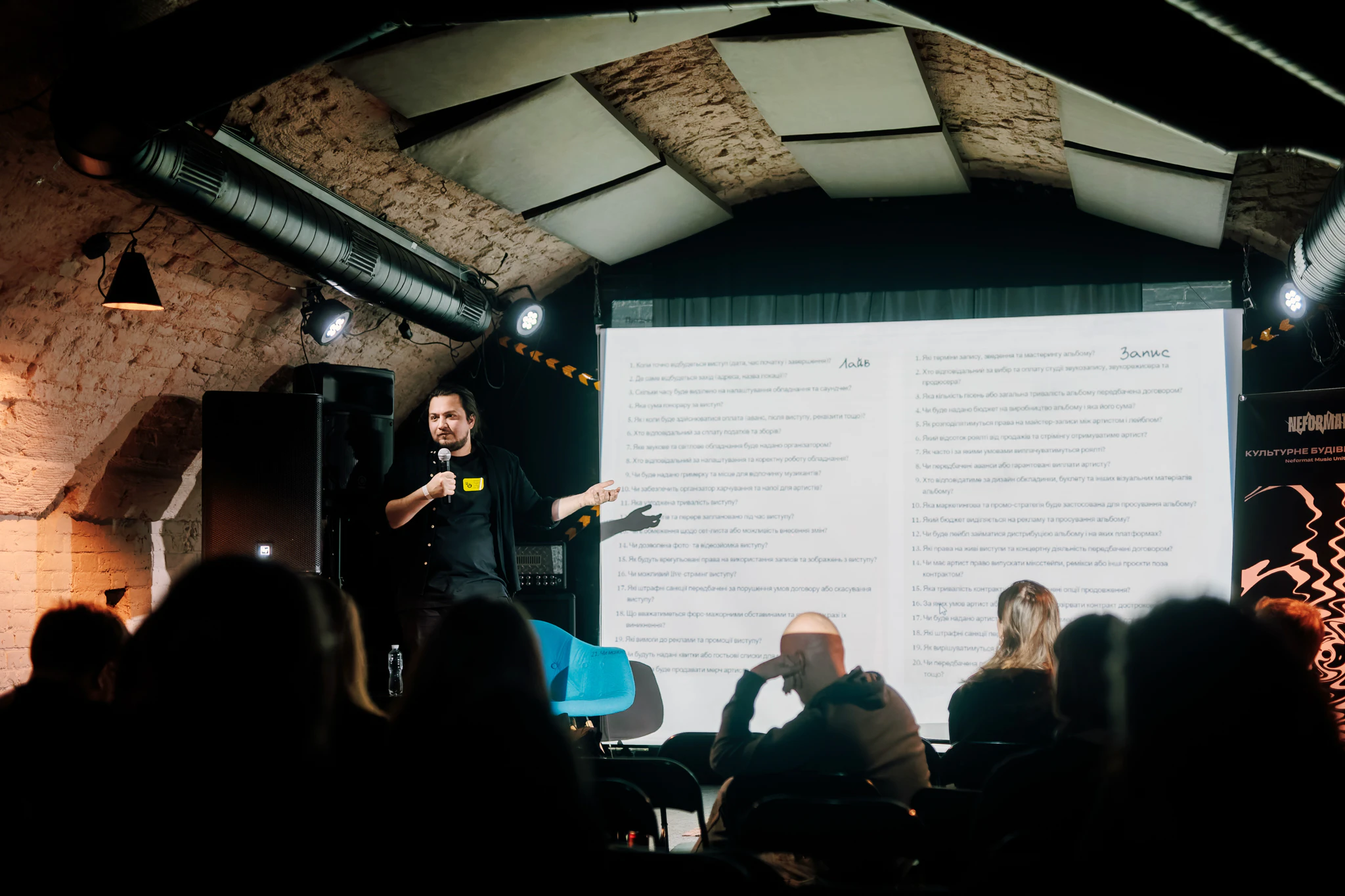
So, it is probably necessary to remind music professionals about this factor, as it is so obvious that we sometimes forget about it. Especially now, under these difficult circumstances, it plays a crucial role in the work of the entire music industry.
What are your long-term goals for the Neformat Music Unity conferences? Do you plan to continue evolving this initiative in the coming years?
Yes, we will definitely look for new grants to hold the next conference. We plan to improve the existing format, adding more opportunities primarily for networking.
Ideally, we would like to develop the conference into a professional event with showcases, where people could not only listen to something insightful but also discover some promising young bands. This year, our editor-in-chief, Yaryna Denysyuk, visited the British showcase festival The Great Escape and was very inspired by this format. So, we will look for opportunities not only to continue but also to expand the conference.
Author: Mariia Akhromieieva
ZMINA: Rebuilding is a project co-funded by the EU Creative Europe Programme under a dedicated call for proposals to support Ukrainian displaced people and the Ukrainian Cultural and Creative Sectors. The project is a cooperation between IZOLYATSIA (UA), Trans Europe Halles (SE) and Malý Berlín (SK).